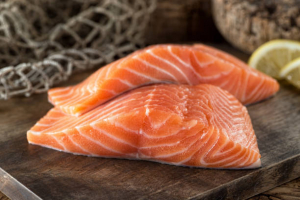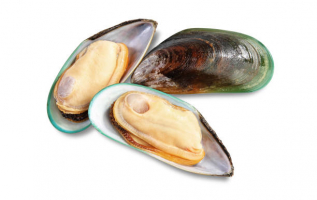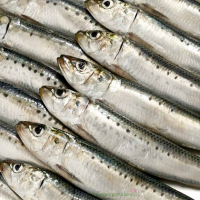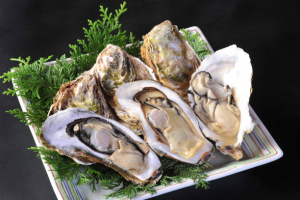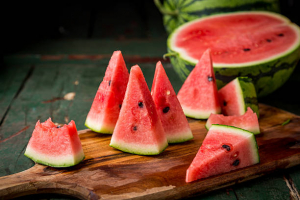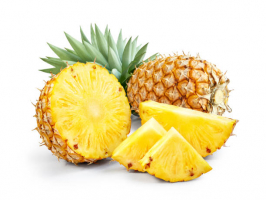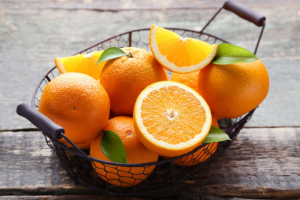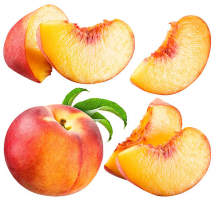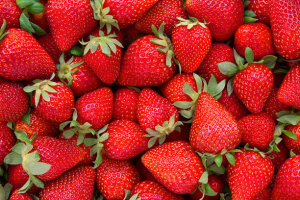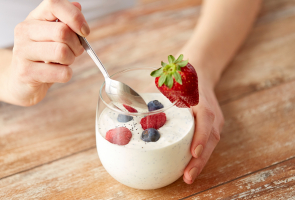Top 10 Health Benefits of Eating Grapes
Grapes have been farmed for thousands of years, and various ancient civilizations valued them for their use in winemaking. Grapes also make a simple and tasty ... read more...snack that you can eat at home or on the road. They come in a variety of hues, including green, red, black, yellow, and pink. They also come in a variety of forms, from raisins to jellies to juice. There are seeded and seedless cultivars available. Grapes have several health advantages, owing to their high nutritional and antioxidant content. Here are the best grape health advantages.
-
One cup of grapes has around a quarter of your daily vitamin C needs, nearly 20% of your daily vitamin K needs, and at least 10% of your daily copper needs. Vitamin C is required for DNA repair, as well as the formation of collagen and serotonin, in addition to maintaining immunity. (The latter promotes contentment and sleep.) Vitamin C also improves iron absorption from plant meals; a greater blood level of vitamin C is linked to improved fat burning, both during exercise and during rest. Vitamin K is necessary for bone production, and a deficiency has been related to an increased risk of fracture.
Copper aids in the creation of energy as well as the development of collagen and red blood cells. Grapes also contain trace levels of numerous important elements, such as B vitamins, potassium, and manganese. Grapes contain many important vitamins and minerals, including copper and vitamins B and K.

Packed with nutrients 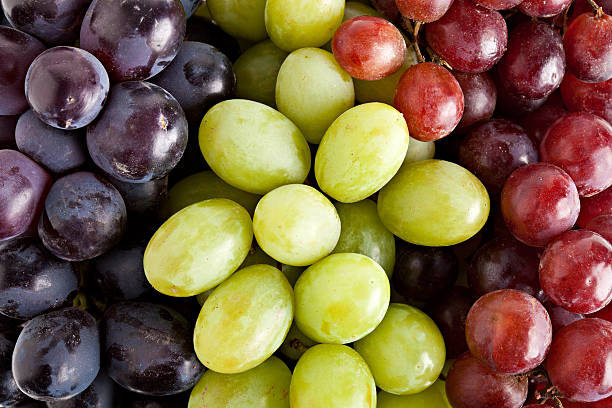
Packed with nutrients -
One cup (151 grams) of grapes supplies 6% of the daily value for potassium. This mineral is required for maintaining normal blood pressure levels. Evidence suggests that potassium can reduce blood pressure by dilating your arteries and veins. It may also aid in salt excretion and reduce artery and vein constriction, which would otherwise raise blood pressure. An analysis of 32 research, however, found that potassium intakes that are both too low and too high can result in elevated blood pressure. The current daily consumption level of 4.7 grams was recommended by the researchers.
Grape compounds may help guard against high cholesterol levels by lowering cholesterol absorption. Eating 3 cups (500 grams) of red grapes per day significantly decrease total and LDL (bad) cholesterol levels in an 8-week trial of 69 adults with high cholesterol. White grapes, on the other hand, did not have the same impact. Furthermore, diets rich in resveratrol, an antioxidant found in grapes, such as the Mediterranean diet, have been demonstrated to lower cholesterol levels. Grapes include compounds that may protect against heart disease by decreasing blood pressure and cholesterol levels.
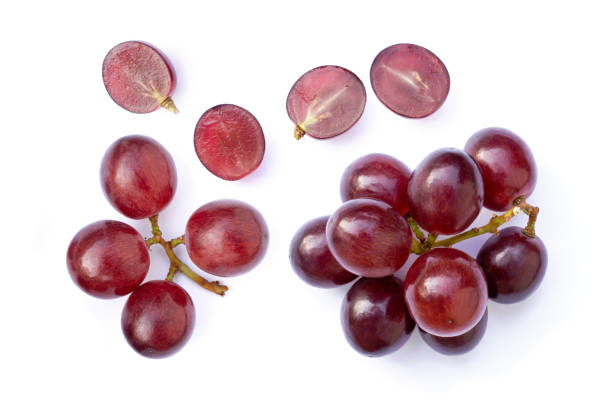
Aid heart health 
Aid heart health -
Grape antioxidants may protect against some forms of cancer. Resveratrol, an antioxidant found in this berry, may aid by lowering inflammation, functioning as an antioxidant, and preventing cancer cell development and spread in your body. In fact, it has been examined for its anti-cancer properties.
Grapes also include antioxidants quercetin, anthocyanin, and catechin, all of which may have cancer-fighting properties. Grape extracts have been shown in animal and test-tube tests to inhibit the development and spread of human colon and breast cancer cells. In addition, a 2-week trial of 30 persons indicated that those over 50 who ate 0.3–1 pound (150–450 grams) of grapes per day had lower indicators of colon cancer risk. While additional human studies are needed, a diet rich in antioxidant-rich foods like grapes has been linked to a decreased risk of cancer.

May have anticancer effects 
May have anticancer effects -
Grapes include 23 grams of sugar per cup (151 grams), making you question if they're a smart choice for diabetics. If you look at their glycemic index (GI) rating — a measure of how rapidly a meal boosts your blood sugar — it ranges from 49 to 59, depending on the grape type. Similarly, the definition of low GI varies depending on the source – some people regardless of 55 are low, while others consider less than 50 to be poor.
This indicates that grapes' GI scores can range from low to medium, implying that they can boost your blood sugar levels slowly or moderately but will not necessarily spike them. Keep in mind, however, that eating too much of a low GI item will have the same impact on blood sugars as eating too much of a high GI food. As a result, it's better to consume grapes in moderation. Furthermore, chemicals identified in grapes may aid enhance insulin response indicators. Grapes and grape supplements significantly reduced homeostatic model assessment of insulin resistance (HOMA-IR), a marker of insulin resistance, in a review of 29 trials involving 1,297 individuals.
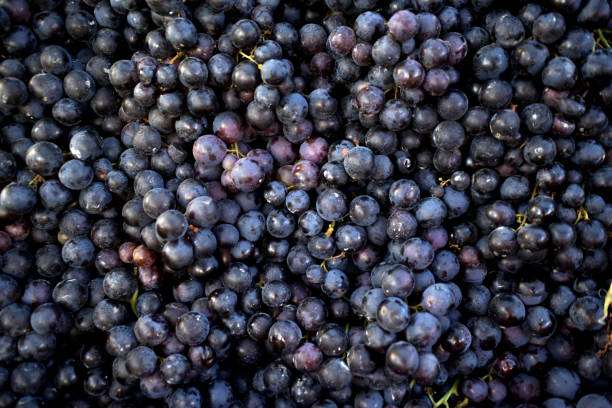
May protect against diabetes and lower blood sugar levels 
May protect against diabetes and lower blood sugar levels -
Grape plant components may prevent common eye disorders. In one study, mice given grapes exhibited fewer symptoms of retinal damage and improved retina function than mice not given the fruit. Furthermore, in a test-tube investigation, resveratrol was discovered to protect human retina cells from ultraviolet A (UVA) radiation. This may reduce your chances of developing age-related macular degeneration (AMD), a common eye illness.
According to one study, resveratrol may help prevent glaucoma, cataracts, and diabetic eye disease. Furthermore, grapes include the antioxidants lutein and zeaxanthin, which have been found to aid in the maintenance of eye health, improve visual function, and prevent major age-related eye illnesses. Grapes include numerous chemicals that may help prevent common eye illnesses, including resveratrol, lutein, and zeaxanthin.
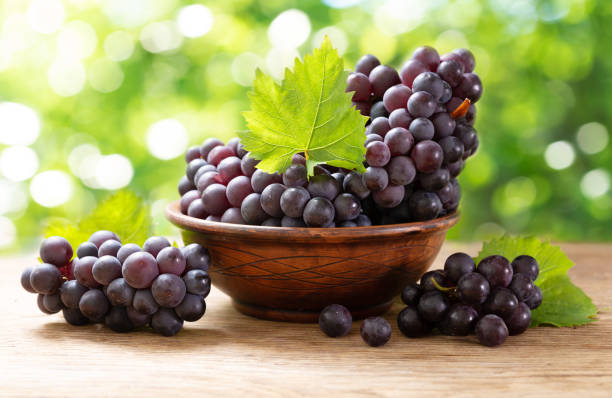
May benefit eye health 
May benefit eye health -
Grapes may improve memory and brain health. Taking 250 mg of a grape supplement daily for 12 weeks increased results on a test evaluating attention, memory, and language in 111 healthy older persons, relative to baseline levels. Another research on healthy young people found that consuming 7.8 ounces (230 mL) of grape juice for 20 minutes increased both mood and the speed of memory-related tasks.
Furthermore, in mouse research, 4 weeks of resveratrol consumption enhanced learning, memory, and mood. Furthermore, the rats' brains showed indicators of enhanced development and blood flow. Finally, resveratrol may help prevent Alzheimer's disease by lowering brain inflammation and eliminating amyloid-beta peptide, which has been related to the illness. Grapes contain compounds that may improve memory, attention, and mood, as well as protect against Alzheimer’s disease.

May improve memory, attention, and mood 
May improve memory, attention, and mood -
Grapes include various elements that are important for bone health, such as potassium, manganese, and vitamins B, C, and K, all of which help prevent osteoporosis, a disorder that causes weak bones. Furthermore, animal and human research show that resveratrol may enhance bone density. In 8-week research, for example, rats fed freeze-dried grape powder showed improved bone absorption and calcium retention than rats not given the powder.
Two-year research in postmenopausal women found that consuming 75 mg of resveratrol twice daily enhanced bone mineral density and delayed bone loss, lowering the incidence of major fractures and hip fractures. Human studies, on the other hand, are still inadequate. Grapes contain vitamins and minerals that are helpful for bone health, although a further study on people is needed.
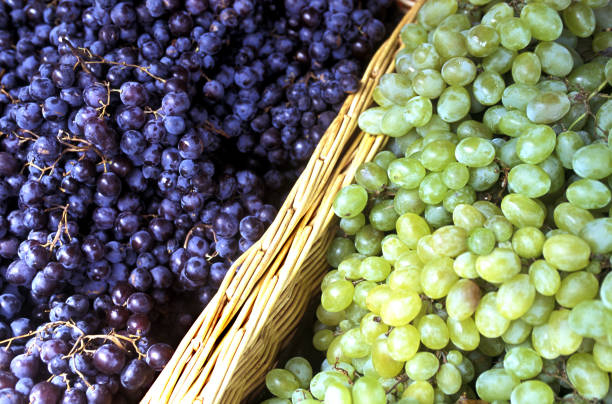
May support bone health 
May support bone health -
Grape plant components may influence aging and longevity. According to research, resveratrol may postpone the onset of aging by imitating the benefits of calorie restriction, such as lowering oxidative stress, increasing stress tolerance, and boosting inflammatory response. Remember that these advantages have only been seen in animal research.
Furthermore, resveratrol stimulates the SirT1 gene, which is triggered by low-calorie diets and has been associated with increased longevity. Resveratrol also increases the activity of sirtuin, a protein that governs cellular processes such as aging and cell death. Resveratrol, found in grapes, has been proven to activate genes linked to slower aging and a longer lifetime.

May slow signs of aging and promote longevity 
May slow signs of aging and promote longevity -
Resveratrol may have several skin and hair preventive properties. In fact, because it penetrates the skin barrier and improves collagen concentration while also protecting against UV damage from sun exposure, this substance has acquired appeal in cosmetic goods. According to animal research, resveratrol's influence on collagen formation may facilitate speedier wound healing.
Because oxidative stress and inflammation contribute to hair loss, studies indicate that resveratrol may potentially increase hair growth. To begin with, resveratrol protects hair follicles from environmental harm. It also encourages the fast proliferation of key follicular cells that support hair growth. Nonetheless, research on the impact of grape intake on skin and hair is limited.

May benefit skin and hair health 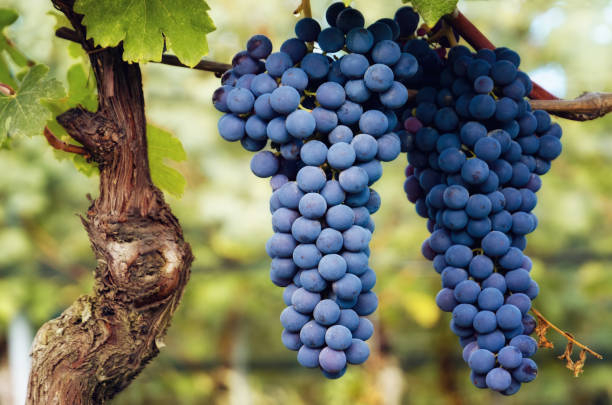
May benefit skin and hair health -
Constipation is characterized by passing stool less often than normal and sensations of incomplete evacuation. Because dehydration is a major secondary cause of constipation, dietary adjustments such as increasing fiber and fluid consumption are critical to therapy. When compared to fruit liquids, the fiber in whole fruits like grapes may considerably alleviate constipation symptoms by decreasing the time it takes stool to transit through your colon and boosting fecal weight and daily bowel movements. Grapes are also 81 percent water, so they may help you meet your hydration goals.
There is evidence that there is a direct relationship between nutrition and sleep. According to research, grapes are a natural source of melatonin, a sleep-promoting hormone that controls your sleep-wake cycle. Interestingly, melatonin is mostly contained in grape skin, which is why it is also found in grape juice and wine. Because melatonin acts in tandem with your internal clock, timing your intake is critical. If you eat grapes to help you sleep, try to do it early in the evening.

May relieve constipation and support sleep 
May relieve constipation and support sleep













